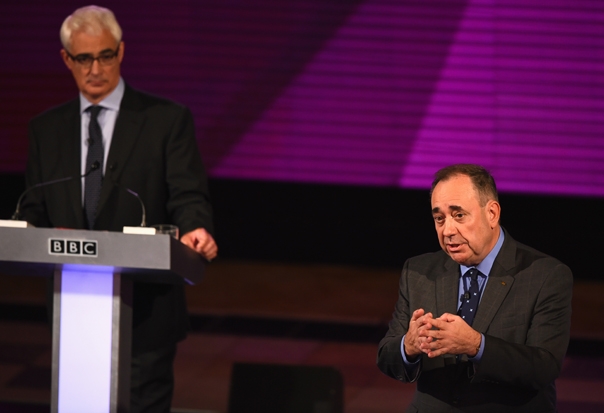[audioplayer src=”http://traffic.libsyn.com/spectator/TheViewFrom22_4_Sept_2014_v4.mp3″ title=”Isabel Hardman, Fraser Nelson and Hamish Macdonell discuss the referendum” startat=700]
Listen
[/audioplayer]Let us take a trip to America in 1976. The unelected incumbent president, Gerald Ford, is being challenged for the Republican party’s nomination by Ronald Reagan — and does not take it seriously. Sure, Reagan may have served as governor of California but, still, come on, is this Grand Old Party really going to choose a two-bit B-movie actor as its standard-bearer? And isn’t he the candidate of fruitcakes and loonies? Say what you will about Gerry Ford but you know where you stand with him.
But not everyone sees it that way. Reagan is winning in places he shouldn’t have a chance. A memo to senior members of the Ford campaign complains that Reagan’s ‘unexpected success’ is thanks to voters who were ‘unknown and have not been involved in the Republican political system before’. ‘We are in real danger,’ the memo warns, ‘of being out-organised by a small number of highly motivated right-wing nuts.’
Bang. That’s what an insurgency looks like. It is true that upstarts often fall short, though sometimes defeat is merely the prelude to victory. Reagan lost in 1976 but won four years later; Howard Dean lost in 2004 but Barack Obama won in 2008. The Scottish National Party has sung its separatist song for decades, and the rest of the country hasn’t joined in. But when things change, the common thread is the political establishment’s loss of control — and evident bewilderment.
There are echoes of this in Scotland now. The ‘no’ campaign risks being out-organised by highly motivated ‘yes’ supporters, many of whom have not previously had any great involvement with politics. The referendum is a contest between two large — and equally legitimate — visions; two ideas of who we really are.









Comments
Join the debate for just £1 a month
Be part of the conversation with other Spectator readers by getting your first three months for £3.
UNLOCK ACCESS Just £1 a monthAlready a subscriber? Log in